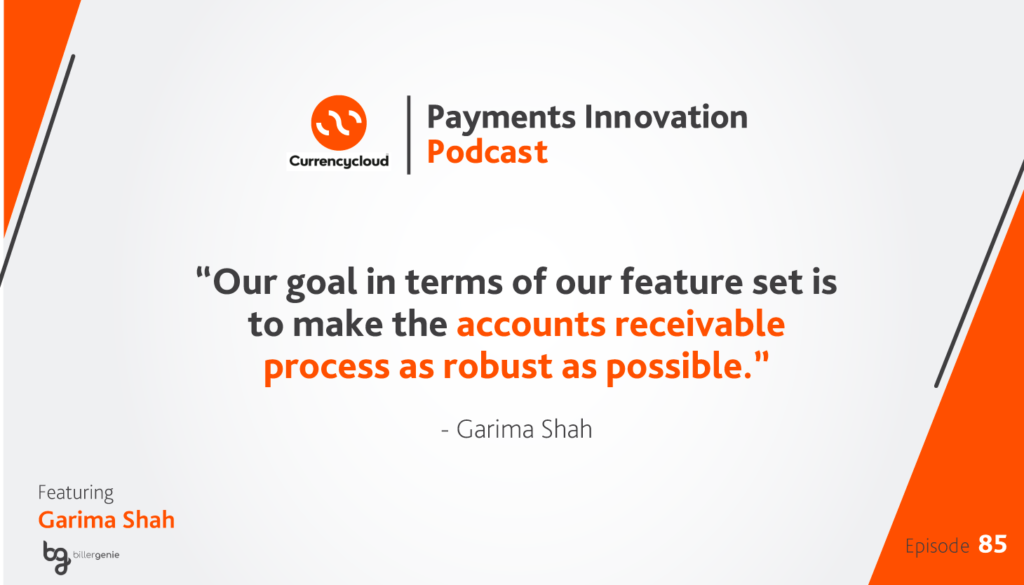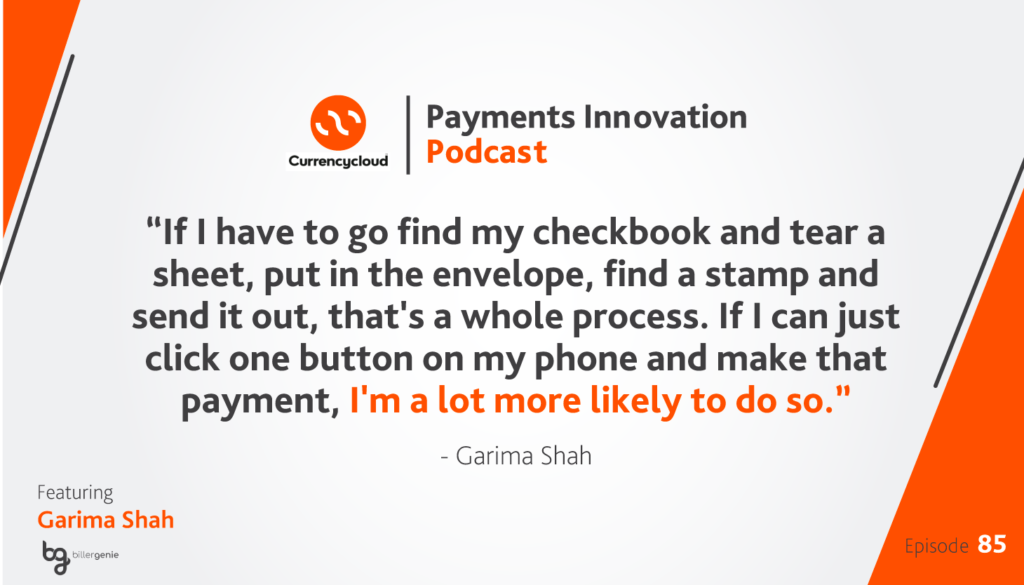A lot of businesses are like a Ferrari with wagon wheels.
Well-oiled machines held back by one outdated component.
And for a lot of businesses, that component is accounts receivable.
On the show today, I’m joined by Garima Shah, President of Biller Genie, a company dedicated to modernizing those janky wooden wheels and bringing them in line with the rest of the car.
Garima explains:
- The problem with current accounts receivable processes
- Why paper checks should go the way of the dodo
- How to operate a fintech without touching the flow of funds
The trouble with accounts receivable invoicing
Biller Genie is an automated accounts receivable e-invoicing platform.
If that seems like too much of a mouthful, you can look at the platform as a way to integrate accounting software, customers and payment providers — pretty much anything in the accounts receivable ecosystem.
Why is this necessary?
Well, have you dealt with invoicing lately?
Many businesses often struggle to get payments in a timely manner. And if you’ve received a phantom invoice from a doctor’s office you haven’t been to this decade, you know why.
It’s not that people can’t pay, it’s just that they need to be reminded. On time.
The doctor’s office example is somewhat ironic — they never forget to confirm your appointment, so what’s the deal with the invoicing?
Essentially, Biller Genie operates on the backend of the accounts receivable process, taking over automation, sending out reminders, handling collections and reconciling everything in the accounting software.
And all of this is done with the existing software the business owns, so there is no new technology to learn.
Do you even know where your checkbook is?
Biller Genie handles a variety of modern payment solutions — PayPal, Apple Pay, Venmo — in addition to more traditional methods of payment processing.
And this is important, since the US seems to be largely clinging to older modes of payments, especially in the B2B space.

Garima says she couldn’t even tell you where her checkbook is if you asked.
For her, the rapid adoption in the UK and EU of super accessible payment technologies can’t cross the pond soon enough — yet, usually by the time the US is onboard, it’s 6 months too late.
So, Biller Genie makes sure to stay ahead of the curve and integrate newer technologies into their platform before they’ve even been widely adopted in the States.
Still, some technologies Garima gets excited about are too far ahead of the curve for the company to work with, like crypto, though she hopes to add it soon.
But that might be a long way off in the B2B world, especially since B2C crypto adoption has been so sluggish.
A fintech free from funds
One of the more interesting aspects of Biller Genie is the company has entirely decoupled from the flow of funds.
In the early days of the company, Garima and her partner were looking at who their partners were. They were overwhelmingly financially institutions and payment providers, for obvious reasons.
Competing with these partners didn’t make a lot of sense — why potentially chase them away?
So, the company really honed in on every nuance in the accounts receivable process and remained agnostic on the payment and accounting software side of things.

And this strategy has worked for them.
Being able to partner with a variety of payment providers and software solutions means they can really deliver a seamless experience for their customers without making them learn new tech.
After all, if you look at the problems with the outdated process of accounts receivable, it’s mostly an accumulation of smaller friction points that drag down the whole process, so why add new ones?
Up to now, Biller Genie haven’t really encountered a merchant account with someone they don’t support — and they are in the process of adding integrations like Stripe and PayPal to add even more convenience.
To ensure that you never miss an episode of Payments Innovation, subscribe on Apple Podcasts, or Spotify, or here.
Until next time!
———————————————————————————————————-


